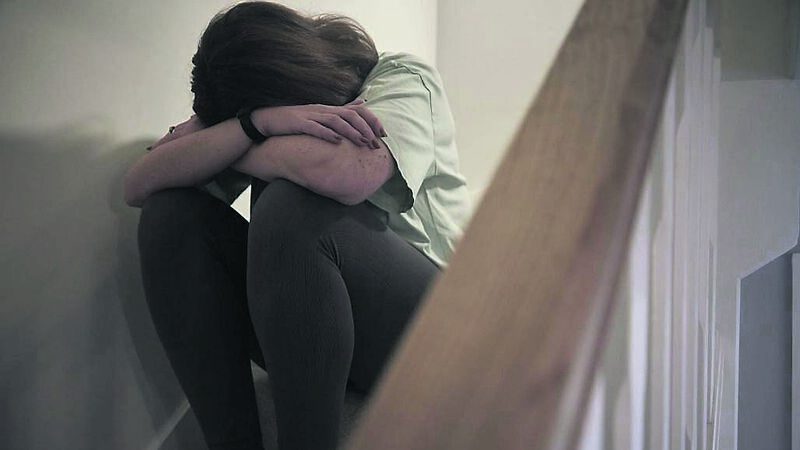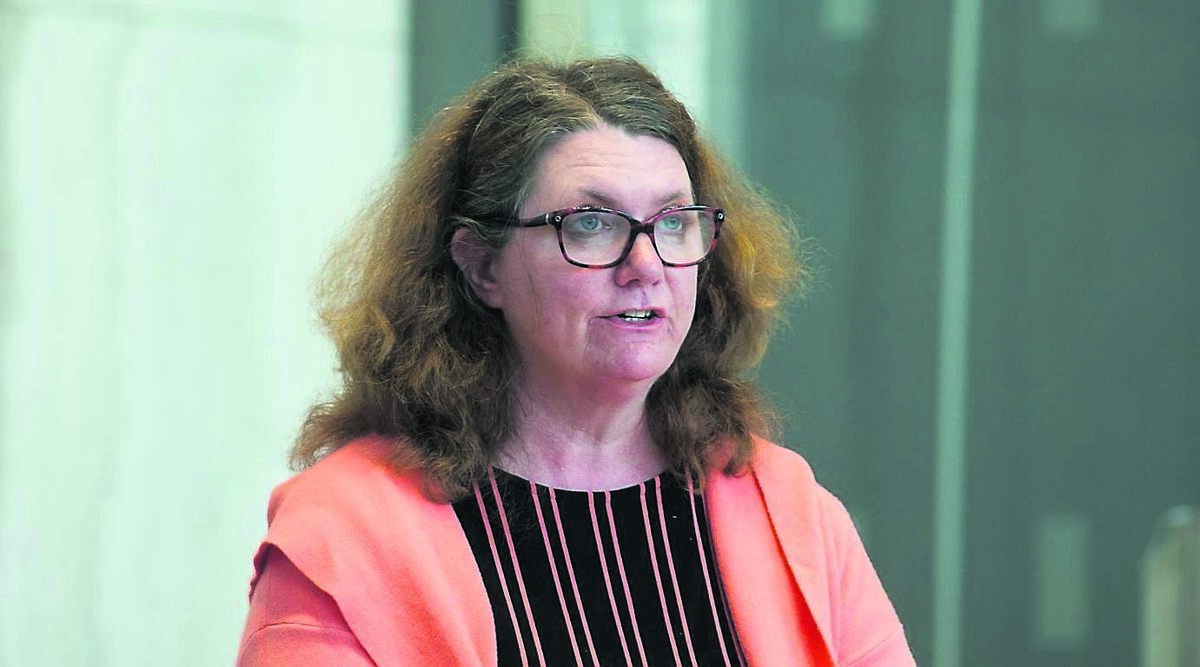Domestic violence and substance abuse ‘an elephant in the room’, says Cork woman recovering from addiction

Perpetrators can use addiction as a weapon to keep partners locked in abusive relationships.
Domestic violence and addiction services need to work together more to address gaps in the system, a Cork domestic violence manager and ‘Alice’, a victim of abuse, who is in recovery from alcoholism, have said.
Alcohol Action Ireland CEO Sheila Gilheany said earlier this month: “We know that in many incidences, alcohol use is the catalyst to significant domestic disruption and abuse. Given the close connection between alcohol and domestic violence, there is an urgent need for early intervention support programmes.”
This connection between addiction and abuse is not just seen in men who are increasingly abusive when under the influence, but in women who are victims of domestic violence and turn to drinking to cope, a Cork woman has said, calling for more to be done for this cohort — who can often be judged rather than helped.
Alice — not her real name — a Cork mother who is in recovery for alcoholism and left an abusive relationship in recent years, told The Echo that the first thing she would like to see is research to see how common her situation is.
“It’s a big issue but it’s almost an elephant in the room,” she said.
“The perpetrators, who tend to be men, can use women’s alcohol or drug use to further their control over them, so a woman in addiction can be controlled and abused more because of their addiction.
“The perpetrators can control their access to drugs or alcohol, and often threaten them with social services, that is my and others’ lived experience. There’s a lot more stigma around women, particularly mothers, using substances than there is men. People don’t know who to blame, the addict or the perpetrator.”
She explained that women who have been domestically abused are more susceptible to addiction, and women in addiction are more vulnerable to domestic violence, saying: “We need to have the evidence first, we need to do some research before we can convince Government parties to provide financial support.
“We are so behind in Ireland, we don’t even know how many women entering a treatment centre are experiencing domestic violence, there’s no screening, just anecdotal evidence.
“We need funding for transition houses, specifically for women who are leaving treatment sober and need a safe environment — I spent nine months in a safehouse, but I was lucky, and it shouldn’t be about luck.”
She explained many women cannot access domestic violence shelters if they are actively drinking or using drugs, and that treatment centres’ methods can be harmful for victims of domestic violence: “Part of recovery is being accountable for our own behaviours and how our families feel about our drinking — they will actively put the behaviour of the man back on the woman, my experience was I was told he was only like this because of my drinking, but there is never any excuse for violence.”
She proposed a dual training programme for addiction and domestic violence services, saying: “Currently we expect somebody to leave the safe environment of a treatment centre and go back to an unsafe home, which is a recipe for going straight back into addiction, it’s almost impossible to be sober and clean in those conditions.
“The perpetrator doesn’t like the new version of the woman who comes home who has greater understanding and wants a better life. In my case, I was literally handed a bottle of vodka and told by my partner: ‘You need this’, and I took it. He didn’t like the changes happening in me and how they were shining a spotlight on the cracks in our relationship.”
She explained that after drinking again for a short period, she left the relationship, returned to treatment, and has been sober ever since: “When we’re sober, we can feel and think — the perpetrator wants to keep the woman small. Part of domestic violence is severing connections with family and friends — and the support and connection part of recovery is the direct opposite to that.
“Of the people who were in treatment with me, two went back out to their abusive partner, went back to their addiction, and are dead now. There is no coincidence there, the harsh truth is that when women go home from a treatment centre to an abusive partner, they’re going home to die.”
The solution to this is better connections between services, such as a specific role in treatment centres for helping women who have experienced domestic violence, she said, adding that social services, homelessness services, and mental health services should be collaborating better.

She said: “We need to take the stigma away and offer support rather than the fear that a woman’s children are going to be taken away from her, and we need to recognise the importance of having a safe environment to come home to, because in an unsafe environment, there really isn’t any option but to pick up a drink again.”
Sinéad Heffernan, the support services manager at West Cork Beacon, told The Echo: “There are definitely gaps in services, and a need for increased collaboration between services who deal with people who have experienced trauma”, saying that research shows a “marked correlation” between addictions and all kinds of abuse, but specifically domestic abuse.
She explained that addiction can be a barrier for victims leaving abusive relationships: “In Ireland, addiction can be viewed through a stigmatised lens, where it is not understood that alcohol and substance abuse are maladaptive coping mechanisms. It’s not surprising they are used during very stressful times in people’s lives.”
Dr Heffernan added that she worked in hospitals for 10 years, saying: “Withdrawal from alcohol can pose serious medical risk, so services and safehouses have to consider these dangers, which is a concern for all residential services. We take a harm-reduction approach and continue to work with the person rather than saying: ‘We can’t work with you because you have a substance abuse issue’.”
'SERVICES ARE LACKING'
She agreed that collaboration was the key: “Services are lacking, in some ways. West Cork Beacon works closely with other services including addiction services; there is an ongoing need for inter-agency collaboration as treating trauma is a complex issue. More training on domestic violence for services who work with us, is needed.
“It shouldn’t be any surprise that domestic violence can lead to substance abuse, but some services look at the substance as the problem in itself and focus on abstinence, and it’s not that simple.
“The trauma-informed care model is considered best practice in service provision for domestic violence, substance abuse, and mental health care, so using this framework in the future will facilitate increased collaboration and screening for domestic violence in substance abuse services and vice versa.
“There are many variables, and many are related to the impact of childhood trauma; there’s a huge intergenerational component too. It’s possible some perpetrators grew up in domestic violence, so they were victims as well.”
She added that data from the Simon Community study in 2017 highlighted high levels of domestic and substance abuse among the homeless in childhood: “We, as crisis services, need to work together, and realise that domestic and substance abuse are two sides of the same coin. There’s a fear among mothers who use alcohol to cope that Tusla may remove their child, which is a valid concern. I can see why it would be a barrier to seeking our help; if they fear the child will stay with their abusive partner or go into care.
“Everything can be used as a tool by abusers, even mental health problems can be used in court despite them often being trauma symptoms. While some women might use alcohol to cope, others might use self-harm — we need to understand the complexity of the abuse and identifying the impact of trauma on that person, without judgement.”
She agreed that more connection between services was key, and added: “If we undertook a national study to ascertain the levels of childhood trauma [including substance abuse and domestic violence], within the Irish population, as has been done elsewhere, it would enhance our appreciation for the need for more joined-up thinking between crisis services.”
- West Cork Beacon urges victims of domestic abuse to get in touch at 1800 203 136 or online www.westcorkbeacon.ie/.







 App?
App?


